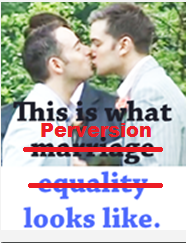 AIDS
has quietly caused the deaths of hundreds of
Roman Catholic priests in the United States
although other causes may be listed on some
of their death certificates, the Kansas City
Star reported today. The newspaper said its
examination of death certificates and
interviews with experts indicates several
hundred priests have died of AIDS-related
illnesses since the mid-1980s. The death
rate of priests from AIDS is at least four
times that of the general population, the
newspaper said. Kansas City Bishop Raymond
Boland says the AIDS deaths show that
priests are human.
AIDS
has quietly caused the deaths of hundreds of
Roman Catholic priests in the United States
although other causes may be listed on some
of their death certificates, the Kansas City
Star reported today. The newspaper said its
examination of death certificates and
interviews with experts indicates several
hundred priests have died of AIDS-related
illnesses since the mid-1980s. The death
rate of priests from AIDS is at least four
times that of the general population, the
newspaper said. Kansas City Bishop Raymond
Boland says the AIDS deaths show that
priests are human.
Astonishing, when you think about it. The paragraph above comes from an Associated Press report on a series of newspaper articles by Judy L. Thomas that appeared in January of 2000. It is too much to say Catholics were "rocked" by the attendant media hype--the scandal threshold has been raised pretty high in recent years--but among the laity the articles occasioned, if not a gasp, at least a general sigh of exasperation. From all sides, almost, one heard the complaint "Why doesn't somebody do something?" Why not indeed.
A large part of the answer is implicit in the remarkable response to the situation tendered by Bishop Boland. To aver that a priest shows he is human by dying of AIDS is to say that it is somehow natural to our human state to engage in acts of passive consensual sodomy, from which the resultant infection takes its predictable course. Few Catholics who are not in Holy Orders would share this view of human nature. In reality, the fact that priests die of AIDS proves that they commit sin, by which they show not that they are human but that they act in a sub-human manner--sub-human not in any special sense, but in the ordinary sense in which each of us falls short of his true human dignity by sinning, whatever our sin may be.
But Bishop Boland, like many of his brethren, is unwilling to concede the major premise. "I would never ask a priest how he got [AIDS]," he told Thomas, "just like nobody asked me two years ago how I got cancer of the colon. But I would provide for him. I would not write him off and say, 'Because you've got AIDS and because there are doubts about how one can acquire it, therefore you're not a good priest.’" Well, let's take the case of a 3-year-old girl brought into the emergency room with a broken jaw and cigarette burns on her rib cage. Suppose the hospital personnel said, "Look, there's more than one way to pick up these injuries, and the girl's medical treatment will be the same whatever their cause, so there's no point in asking how she got them."
Most of us would see such a response as a culpably willful refusal to face up to a grim reality. By the same token, when we are urged to pretend that there is room for doubt as to how most priests contract AIDS, we can be sure that our gaze is being intentionally diverted from the ugly and indisputable facts: a disproportionately high percentage of priests is gay; a disproportionately high percentage of gay priests routinely engages in sodomy; this sodomy is frequently ignored, often tolerated, and sometimes abetted by bishops and superiors. ...
The gay priest problem will continue to worsen as long as this code-talk remains the dominant idiom. As long as seminarians are "educated in sexuality" by the Michael Petersons and are warned by their superiors that they must "live comfortably with people of different sexual orientations," we can be sure that the number of gays will steadily increase in the clergy and the language of moral integrity will be pushed out of the discussion. Quite simply, those entrusted to fix what is broken are broken themselves and are camouflaging their real motives in the fuzzy vocabulary of therapy and pastoral sensitivity.
As with every institutional crisis, this one ultimately boils down to the question of accountability. Who recruits the newcomers? Who forms their habits and attitudes? More importantly, who appoints the recruiters and educators? Who will name the problems for what they are and take responsibility for putting them right? The issue of accountability forces us to confront a yet more intimidating crisis, one which is easily misunderstood and which I take up with reluctance, but which must be faced squarely as an unpleasant truth.
SOURCE: Catholic Culture : News Features







